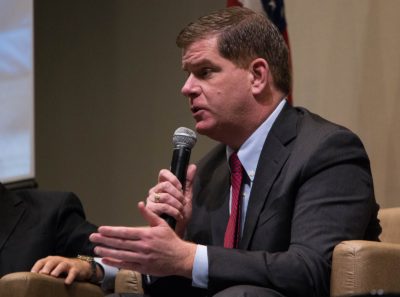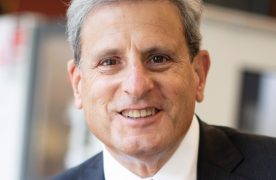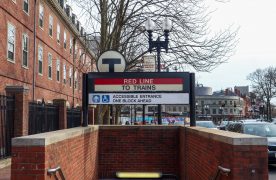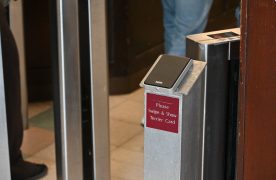
A new citywide pilot initiative will help out around 40 at-risk individuals in the early stages of substance abuse recovery by awarding them stipends to support their efforts.
Boston Mayor Martin Walsh and the Mayor’s Office of Recovery Services announced Thursday The Personal Advancement for Individuals in Recovery initiative, which is a seed grant program that will provide individuals belonging to low-income or unstable households with the wraparound services required for their recovery, said policy director Brendan Little.
It also consists of a partnership between the City of Boston, the Letter’s Foundation and the Gavin Foundation, Little added.
The Letter’s Foundation has pledged $100,000 to the pilot, according to a press release from Walsh’s office.
Little said that when people think about those suffering from substance abuse disorder receiving treatment, a rehabilitation center or halfway house often comes to mind.
But while these are crucial assets, other supports that are fundamentally necessary for individuals recovering from addiction attempting to remain on the right path are often forgotten, Little said.
This is where the new initiative comes into play.
“That’s housing, a job, an opportunity to advance themselves personally,” Little said. “This is a need that we’ve identified just in working with different providers within the city, within our programs that we run through the Boston Public Health Commission […] this is a big gap.”
Little said after this need was identified, the Letter’s Foundation approached the office, seeking to establish a community-based partnership to allow individuals to receive small feed grants so they can support themselves.
“The Letter’s Foundation would really enable us to have the flexibility to give people exactly what they need for things that are not covered under different programs,” Little said. “Such as […] buying books for their college classes.”
The city enlisted the help of the Gavin Foundation because the service provider treats people at all levels of the continuum, from detox to clinical stabilization, to aftercare and sober living, making the nonprofit agency apt to select suitable candidates for the program, Little said.
Once the applicant makes an appeal for the amount of funds they need, based on their specific hardship, it is ultimately up to the Letter’s Foundation to approve or deny the request, Little said. The program differs from other initiatives in the sense that the foundation doesn’t give the city or the individual money, but instead pays for the services on the person’s behalf.
Little stressed the pilot is currently in an experimental stage and is subject to change, but said approximately 40 people are expected to benefit from the program, with an average of $2,500 allotted per person.
Jared Owen, communications coordinator for the Massachusetts Organization for Addiction Recovery, said as a graduate of a Department of Public Health-funded treatment home, he has seen firsthand the aftermath of a support system not being provided to individuals once they leave the center.
“I noticed that a lot of my friends and the people I went through treatment with … when they left, there was not enough support or wraparound services to keep them in recovery,” Owen said. “Any program that’s going to help people get the services they need to sustain that recovery is an excellent step forward.”
Two of the major challenges people face when they begin the path to recovery revolve around housing and employment. The initiative addresses these two areas, and will be beneficial in helping those affected remain stable, Owen said.
“A lot of people that struggle with addiction also struggle with a criminal record, which can make it very difficult to find a job,” Owen said. “And with housing the way it is in Boston, it can be too expensive for people in recovery to really get a foothold. You can’t expect someone to stay sober if they have to sleep underneath a bridge.”
Several Boston residents expressed support for the initiative, and said it will be especially helpful for members of the low-income bracket, who do not often have support systems or services readily available to them.
Amanda Matos, 37, of Jamaica Plain, said she thinks this initiative is particularly important given the current opioid epidemic.
“I think, in particular, the opioid epidemic is affecting all socioeconomic backgrounds, but definitely for low-income folks who have a much harder time accessing services, or who may not feel well-represented in a lot of health settings, they definitely need an extra boost in that regard,” Matos said.
Lindsay Allen, 28, of the South End, said she thinks the program will benefit those who do not have immediate access to care for their illness.
“I think it will be really helpful,” Allen said. “I think it’s instrumental in combatting this terrible epidemic.”
Gatebe Kironji, 29, of Brighton, said as a resident in the emergency department of the Boston University Medical Center, he constantly sees individuals coming in who suffer from substance abuse disorders, and said he supports any types of service that will help restore order in their lives.
“I think one thing you can definitely see with people with higher incomes is social supports are there,” Kironji said. “Often times people in low-income socioeconomic status, they don’t have those kinds of support systems. Having those resources will definitely help them.”














